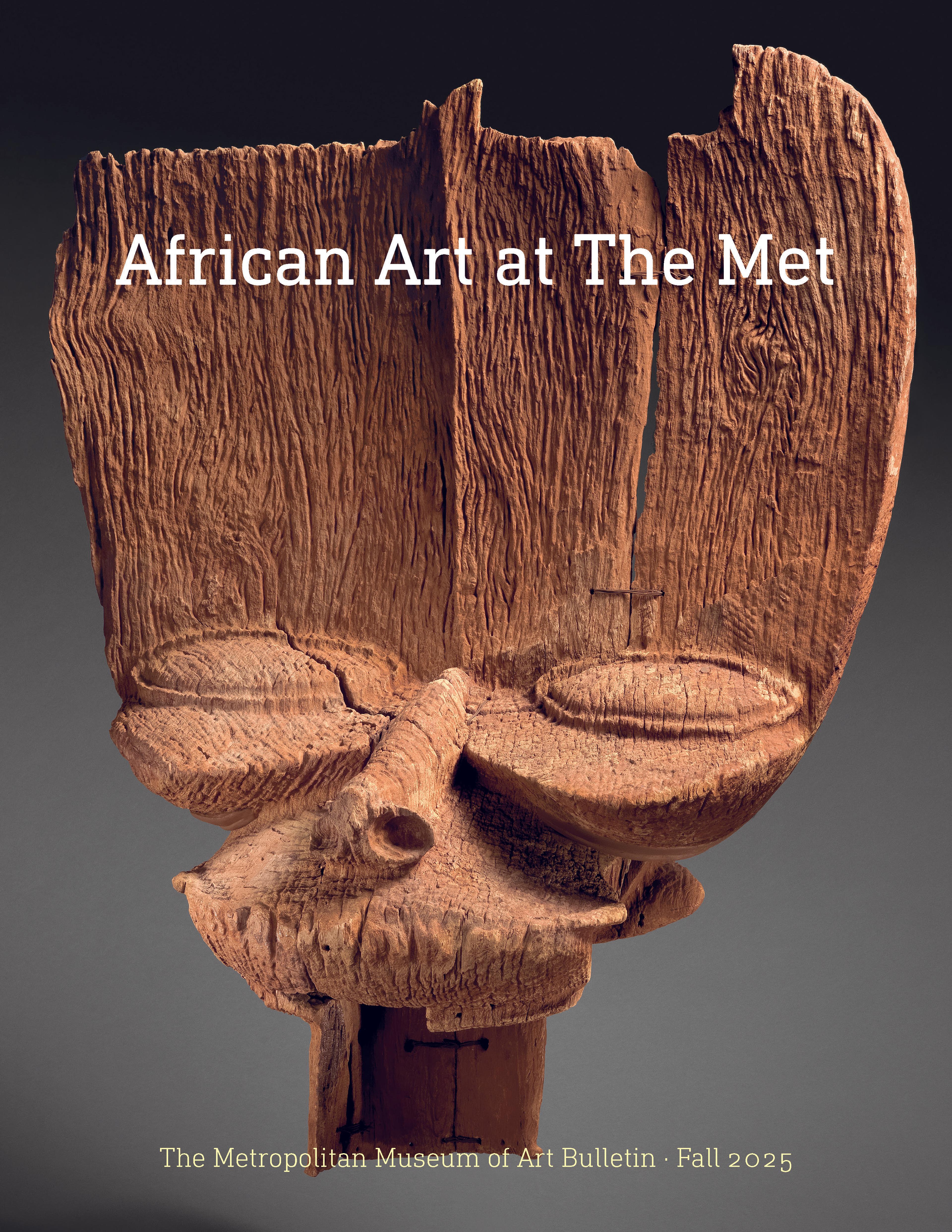Togu na support post with male and female figures
Within every quarter of a Dogon village is at least one togu na, or men’s rest house. Located near the central plaza, they are the first structures built in a village when it is founded. Its low ceiling is designed so that the men who congregate within cannot stand upright, but are obliged to harmoniously sit in communal repose or engage in discussions of issues important to the community. The rectangular, open-sided shelter is crowned by a thick roof of millet thatch supported around its perimeter by stone or wood pillars, which may be carved with exterior-facing imagery.
Most of the togu na posts that feature figural imagery are from villages on the Seno Plain, a sandy expanse extending from the Bandiagara’s cliffs to the Malian border with Burkina Faso. The majority of these pillars depict voluptuous female figures with pronounced conical breasts, but others feature animals, masks, and phallic imagery. In this example, two sets of footprints appear at the base of a symmetrical, rectilinear male and female pair. Drawing their imagery from Dogon myth, these footprints have been interpreted as those of Nommo, the living being who first stepped on and laid claim to earth.
Most of the togu na posts that feature figural imagery are from villages on the Seno Plain, a sandy expanse extending from the Bandiagara’s cliffs to the Malian border with Burkina Faso. The majority of these pillars depict voluptuous female figures with pronounced conical breasts, but others feature animals, masks, and phallic imagery. In this example, two sets of footprints appear at the base of a symmetrical, rectilinear male and female pair. Drawing their imagery from Dogon myth, these footprints have been interpreted as those of Nommo, the living being who first stepped on and laid claim to earth.
Artwork Details
- Title: Togu na support post with male and female figures
- Artist: Mande numu (blacksmith)
- Date: 19th–mid-20th century
- Geography: Mali, Seno Plain
- Culture: Dogon peoples
- Medium: Wood, metal
- Dimensions: H. 75 x W. 33 1/2 x D. 6 in. (190.5 x 85.1 x 15.2 cm)
- Classification: Wood-Architectural
- Credit Line: Gift of Lester Wunderman, 1979
- Object Number: 1979.541.5
- Curatorial Department: The Michael C. Rockefeller Wing
More Artwork
Research Resources
The Met provides unparalleled resources for research and welcomes an international community of students and scholars. The Met's Open Access API is where creators and researchers can connect to the The Met collection. Open Access data and public domain images are available for unrestricted commercial and noncommercial use without permission or fee.
To request images under copyright and other restrictions, please use this Image Request form.
Feedback
We continue to research and examine historical and cultural context for objects in The Met collection. If you have comments or questions about this object record, please contact us using the form below. The Museum looks forward to receiving your comments.
